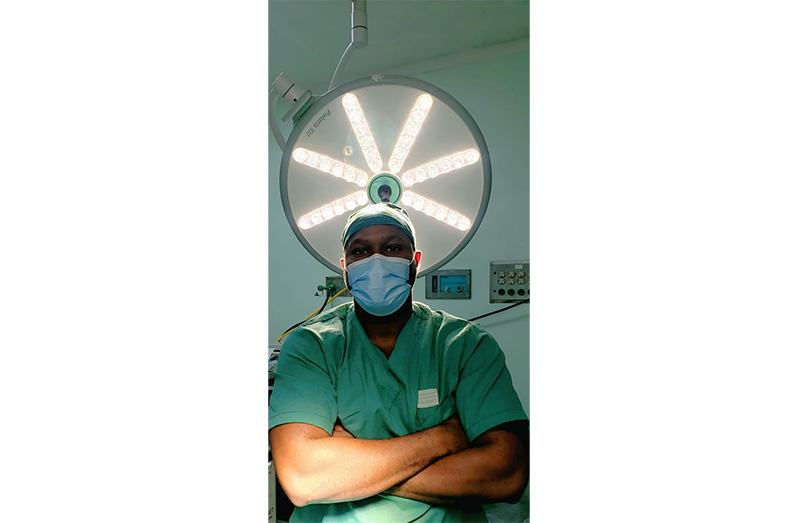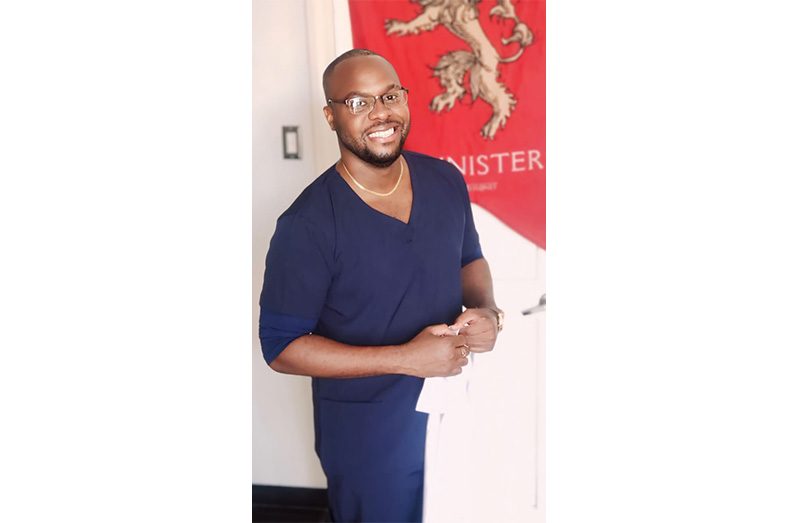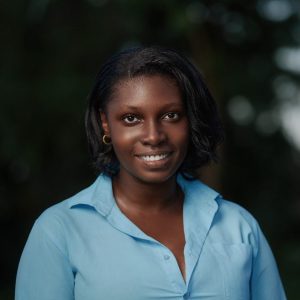Guyanese Doctor Avlon Jeffrey makes history with ground-breaking surgery in Cuba, hopes to return home to make a lasting change
WITH steady hands, a profound sense of resolve, and a passion for medicine, Guyanese doctor, Avlon Jeffrey, has been breaking new ground and hopes to rewrite the cardiology landscape in Guyana. A fifth-year resident currently studying at Cuba’s Hospital Hermanos Ameijeiras, one of the country’s premier teaching institutions, Dr Jeffrey made history on April 9 of this year when he became the first foreign resident at his level to independently perform a successful valve replacement surgery at the institution.
After leaving Guyana just five years ago to further his studies, Dr Jeffrey aims to return home and resume his post as a cardiologist, where he believes Guyana has the potential to become a leader in cardiovascular care.
Although he continues to clear new hurdles, Dr Jeffrey is no stranger to the field of cardiovascular surgery. Before embarking on his current journey, he served as a general practitioner at the Georgetown Public Hospital Corporation (GPHC), where he worked to make cardiovascular surgeries in Guyana routine rather than rare. He first left Guyana at just 17 years old to study abroad and returned as a young practitioner in a field with many limitations. GPHC treats patients with heart attacks, heart failure, congenital heart disease, and valvular heart disease, with over 1,000 patients scheduled for heart-related visits annually. However, the hospital cannot yet conduct routine heart surgeries, something Dr Jeffrey has long hoped to change. Today, he is one step closer to realising that goal.
Speaking to Pepperpot Magazine from Cuba, Dr Jeffrey said that transforming Guyana’s cardiovascular landscape remains his passion.
“I often have to remind myself why I started this journey in the first place. It’s to bring routine, specialised cardiovascular care to my country. I also leaned on the values instilled in me growing up — the importance of resilience, adaptability, and the belief that every challenge is a new opportunity to learn and grow. Knowing that I am working toward something bigger than myself carries me through the toughest of days. I’m still a resident. I’ll soon be finishing up here, and thereafter, I’ll be heading home,” he shared.
Cardiovascular Care and a Defining Moment
Cardiovascular care is arguably one of the most complex branches of medical science, and undoubtedly one of the most vital. That’s why the tense atmosphere, the thoughts of worry, and the intense focus in the operating room on that historic day are easy to understand. Dr Jeffrey not only made history as a Guyanese but also as the first international student at the institution to perform such a procedure at his level.
Recounting that day, he said:
“That day in the operating room was unlike any other for me. As I was scrubbing in, I could feel the weight of the moment. I felt the responsibility to my patient, to my mentors, and to myself, especially to myself, because it was a moment of self-evaluation. It was a moment to see where I was, how competent I was, if I could stand on my own. Because we prepare theoretically, but can you do it? Can you actually do what’s called for? And so it was very much a moment of self-evaluation. The atmosphere in the OR was focused, yet calm.”
The historical weight of the moment was not lost on him.
“I could hear the steady rhythm of the monitor, which somehow mirrored my own resolve, because I had to get into a state of zen-focused, relaxed. My mind was entirely on the procedure, and I went through every step in my head. Every step that I had studied and practised in great detail. At the same time, I was aware of the moment — the historic significance of the moment — both for my residency programme and for my country.”
The intensity did not end in the OR.
“I didn’t actually breathe a sigh of relief until 24 hours after, when the patient was extubated. I found that she had minimal bleeding. She woke up and, you know, she wasn’t a vegetable. That is when I relaxed. That is when, you know, I felt, okay, you did something here. I think as surgeons, we’re careful not to celebrate too soon.”
Guyana’s Cardiology Challenges and Potential
Countless doctors across the Caribbean have studied in Cuba, which is praised for its robust health system, practices Dr Jeffrey hopes to bring back to Guyana.
“Cuba has a unique approach to resource allocation, which initially required me to adjust how I thought about patient management and surgical planning. It taught me the importance of flexibility and innovation, how to work within constraints, which I think will help me throughout my career,” he said.

Another lesson Dr Jeffrey gained was the deep sense of community between patients and healthcare professionals.
“The relationship is built on mutual trust. I’ve seen colleagues see patients in the clinic, and it’s not like in Guyana. In Guyana, you see patients, you’re objective, you do what you have to do, and that’s it. Here, there is a sense of family, a sense of care, and this made me realise that medicine is as much about humanity as it is about science. This unique perspective has shaped the way I practise medicine and how I connect with people.”
With changes happening across all sectors, Dr Jeffrey believes that Guyana’s medical landscape is no different, and that the country has the potential to be a leader in cardiovascular care.
“First and foremost, there is a need for significant investment in the necessary infrastructure, including specialised facilities equipped with modern technology for cardiac procedures. Alongside that, we need ongoing training and development of local medical professionals to cultivate a team skilled in cardiovascular surgery, cardiovascular anaesthesia, post-operative cardiac care — people like cardiac intensivists, post-op cardiologists, and specialised nurses.”
He added:
“Secondly, I think it would be proactive to establish international partnerships with institutions and experts who have been doing this for a long time, where we can share knowledge, transfer skills, and eventually develop a programme tailored to Guyana’s unique healthcare system to address the needs of the Guyanese population.”
Coming Home to Build Something New
Armed with new knowledge and invaluable experience, Dr Jeffrey is optimistic about returning home. For him, coming home is not just about resuming a routine — it’s about building new systems.
“Coming home means returning to my roots, reconnecting with my community — the community that shaped me, that made me who I am. It’s an opportunity to bring back everything I’ve learned and achieved to Guyana. It’s not just about my personal growth, but to give back.”
He added:
“For me, coming home is about contributing to the development of Guyana’s healthcare system when it comes to cardiovascular surgery. It’s about working to ensure specialised cardiac care becomes accessible. It’s about being a part of something larger than myself, creating a legacy for myself and for my country when we talk about cardiovascular surgery.”












